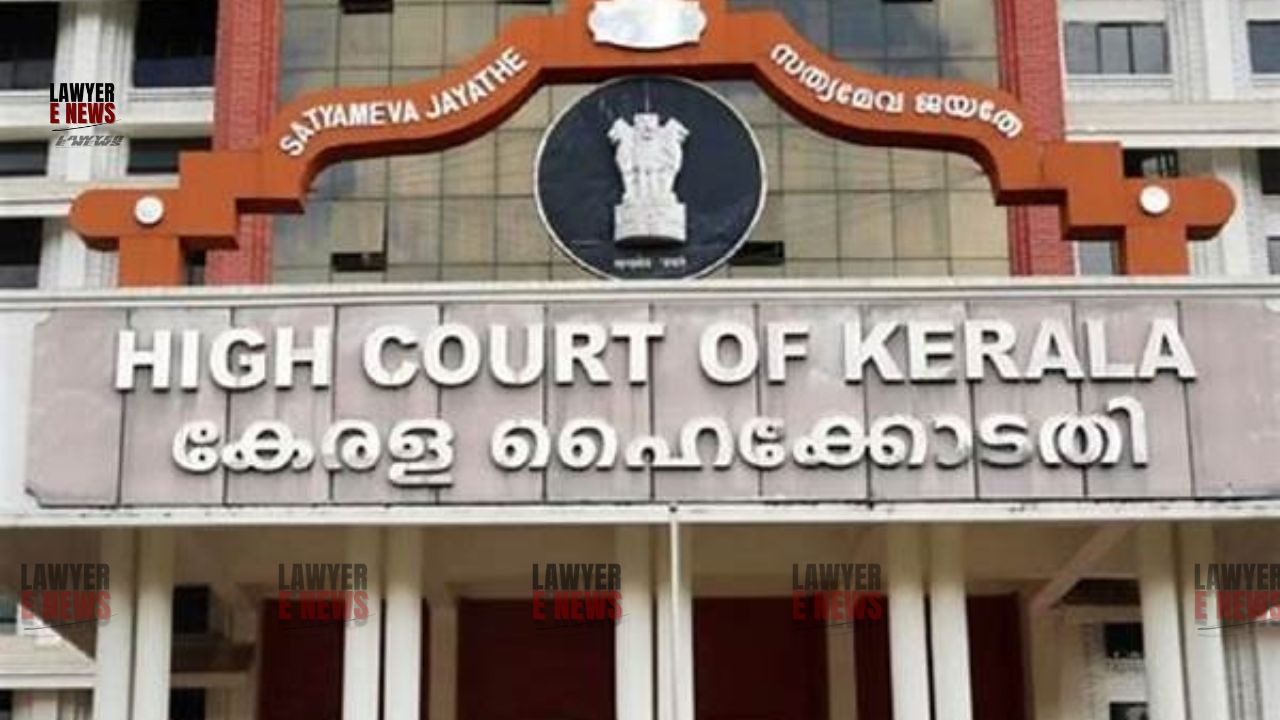-
by sayum
20 February 2026 8:24 AM



“Ultimate Control Rests With the University – Mess Workers Are Its Employees for Gratuity Purposes” – Kerala High Court dismissed writ petitions filed by Kerala Agricultural University, challenging orders of the Controlling Authority under the Payment of Gratuity Act, 1972, which had directed the University to pay gratuity to mess workers employed in student hostels.
A Division Bench comprising Justice Sathish Ninan and Justice P. Krishna Kumar held that notwithstanding the role of student mess committees, the University exercised ultimate control over hostel administration and the terms of engagement of the mess staff, and was therefore statutorily liable as the “employer” under the Gratuity Act.
The writ petitions were filed by Kerala Agricultural University against orders passed by the Deputy Labour Commissioner, Thrissur, in favour of two mess workers: M.I. Jose (WP(C) 40562/2017) and I.K. Velukutty (WP(C) 10195/2018). These workers had served in hostel messes from 1975 to 2009 and 1991 to 2005, respectively. Afterward, they were appointed as casual labourers by the University and received gratuity for the casual labour period. However, their claim for gratuity for their earlier service in the hostel messes was denied by the University on the ground that they were not employees of the University, but rather engaged by student-run mess committees.
The workers approached the Controlling Authority under the Gratuity Act, which upheld their claims. The University then challenged these orders through the present writ petitions. A reference was made to a Division Bench due to an apparent conflict between previous judgments of the High Court.
The primary issue was whether the University could be held liable under the Gratuity Act for gratuity claims of workers appointed and managed ostensibly by student mess committees.
The University contended that mess workers were engaged and paid by the mess committee, operated on a no-profit-no-loss basis by hostel inmates. The University disclaimed any employer-employee relationship, claiming it neither paid wages nor exercised administrative control.
However, the High Court held otherwise, relying on a detailed analysis of the Hostel Rules, the First Statute of the Agricultural University, and provisions of the Gratuity Act.
The Court noted that, as per Section 2(e) and 2(f) of the Payment of Gratuity Act, the term “employee” includes any person employed in connection with the work of an establishment, and “employer” includes anyone with ultimate control over the establishment. The mess workers were found to be performing work in direct connection with the University’s hostel system—a part of its statutory framework.
The Court observed: “If the mess workers are entitled to get gratuity under the said Act, it cannot be said that the University has no liability… The Mess Committee, comprising only the students’ representatives, is only a fluctuating body having the life span of just one month.” [Para 21]
The Court highlighted the following crucial legal and factual findings:
The Hostel Rules framed under the Kerala Agricultural University Act, 1971, and the First Statute revealed comprehensive and effective control of the University over hostel messes.
Appointments, termination, and disciplinary control of mess workers rested with the Warden, who is a University authority. Student mess committees had only recommendatory power.
The mess fund, though generated from student contributions, was operated by the Assistant Warden, and all accounting responsibilities lay with University-appointed officials.
Even though the students managed day-to-day affairs, the University retained institutional oversight, which made it the “employer” under the Gratuity Act.
Whether or not the Hostel Rules had statutory force was immaterial; the fact that the University had practical and legal control sufficed.
The Court squarely applied the principle laid down by the Supreme Court in G.B. Pant University of Agriculture & Technology v. State of U.P., (2000) 7 SCC 109, where cafeteria workers were held to be University employees despite similar claims of student control. Echoing the same, the Kerala High Court asked rhetorically:
“Whose employees are they, if not of the University? Since when did the consumer of food become the employer?” [reaffirming the logic in G.B. Pant University]
The Court also clarified that there was no conflict between the earlier Division Bench decision in Sathikumar P. v. Vice Chancellor (which concerned selection eligibility under University service rules) and the later judgment in Warden, College of Horticulture v. RPFC (which concerned provident fund liability of the University).
Hence, the earlier case did not preclude gratuity claims of mess workers under the Payment of Gratuity Act.
The Court rejected the University’s argument that it had no employer-employee relationship with the mess workers. It noted that the workers had served for several years under the authority of University-appointed hostel staff, that disciplinary control lay with the Warden, and that records and accounts were handled by the Assistant Warden.
The Division Bench concluded: “The University is deemed to be the employer of the mess workers, as far as the liability to pay gratuity is concerned.” [Para 23]
While noting that the University has since discontinued this system and all such mess workers had retired, the Court held that such factual developments do not absolve past liabilities under the Gratuity Act.
The writ petitions were accordingly dismissed. The Court upheld the orders of the Controlling Authority and confirmed the University’s liability to pay gratuity to the workers. No costs were awarded.
In this landmark judgment, the Kerala High Court has reaffirmed that employers cannot bypass statutory obligations like gratuity by routing employment through committees or indirect arrangements. Where an institution exercises actual control and oversight, it will be treated as the employer, even if the formal appointment is made through another body.
The ruling strongly reiterates the beneficial and inclusive character of the Payment of Gratuity Act, ensuring that long-serving workers engaged under informal or semi-formal setups are not deprived of rightful benefits merely due to administrative structuring or technical arguments. The decision is especially relevant for educational institutions and public bodies relying on decentralized or semi-autonomous service management systems.
Date of Decision: 28 May 2025
